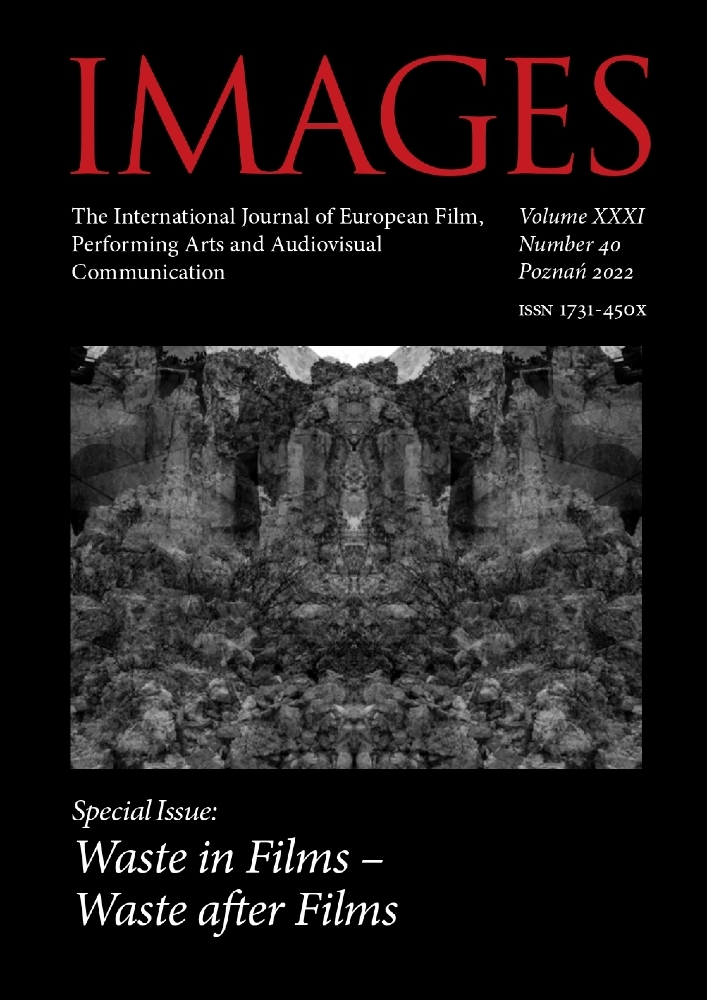Abstrakt
The paper provides an analysis of the documentary Polluting Paradise (2012) by Fatih Akın within the context of eco-trauma cinema. The movie depicts ecological contamination as a social problem and mutual catastrophe, exactly as the theory of eco-trauma cinema suggests. Through a careful observational mode of filmmaking that characterize Polluting Paradise, the mechanisms that are responsible for environmental pollution are being scrutinized. The author argues that the movie combines documentary techniques with melodramatic structures for the sake of the audience’s emotional involvement. The article concludes with a reflection on the cinematic rhetoric used by Akın to affect the viewers.
Bibliografia
Ingram D., Green Screen. Environmentalism and Hollywood Cinema, Exeter 2010 Kaplan E.A., Climate Trauma. Foreseeing the Future in Dystopian Film and Fiction, New Brunswick – New Jersey – London 2016
Kracauer S., Theory of Film. The Redemption of Physical Reality, Princeton 1997
Narine A., Introduction: Eco-Trauma Cinema, [in:] Eco-Trauma Cinema, ed. A. Narine, New York – London 2015, pp. 1–24 https://doi.org/10.4324/9781315762814 DOI: https://doi.org/10.4324/9781315762814
Shaman C., Testimonial Structures in Environmental Justice Films, [in:] Framing the World. Explorations in Ecocriticism and Film, ed. P. Willoquet-Maricondi, Charlottesville – London 2010, pp. 83–100
Williams L., Melodrama Revised, [in:] Refiguring American Film Genres. History and Theory, ed. N. Browne, Berkeley – Los Angeles – London 1998, pp. 42–88
Licencja
Prawa autorskie (c) 2023 Adam Domalewski

Utwór dostępny jest na licencji Creative Commons Uznanie autorstwa 4.0 Międzynarodowe.

